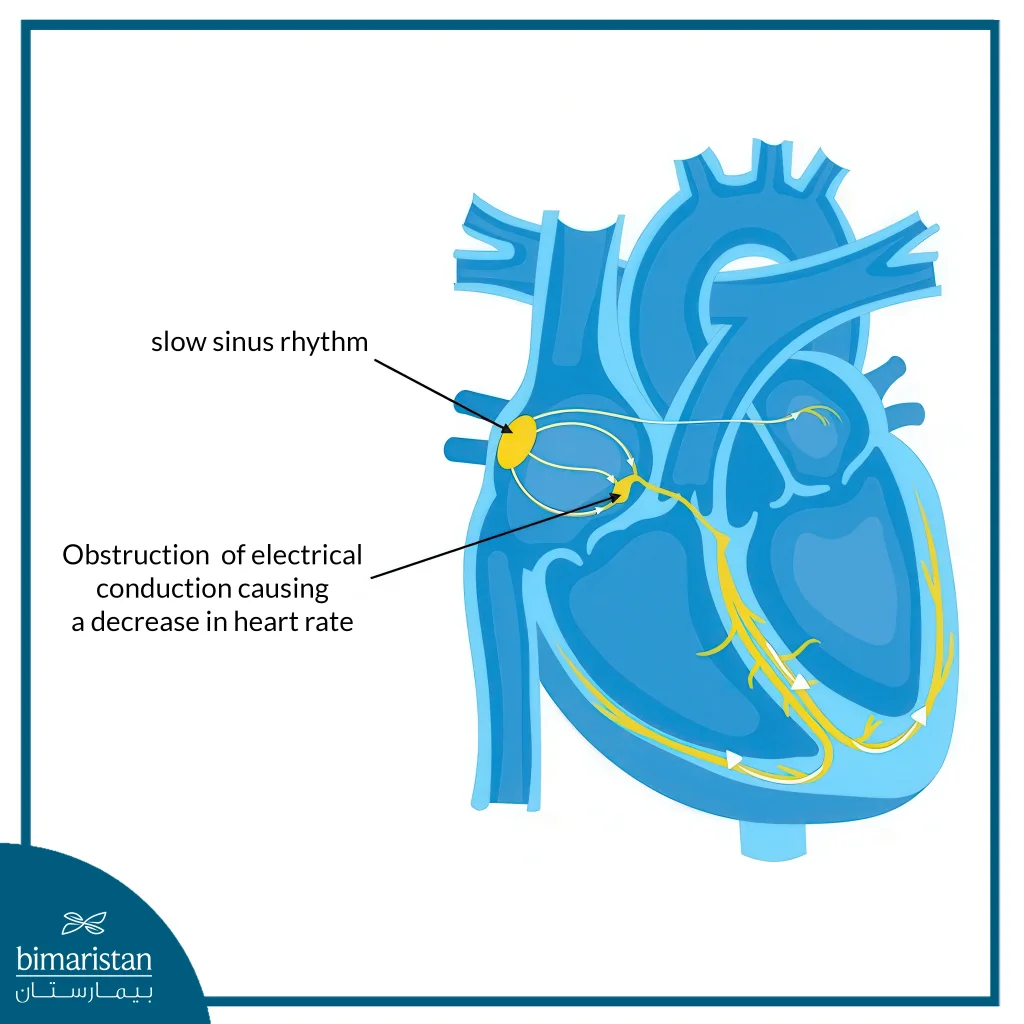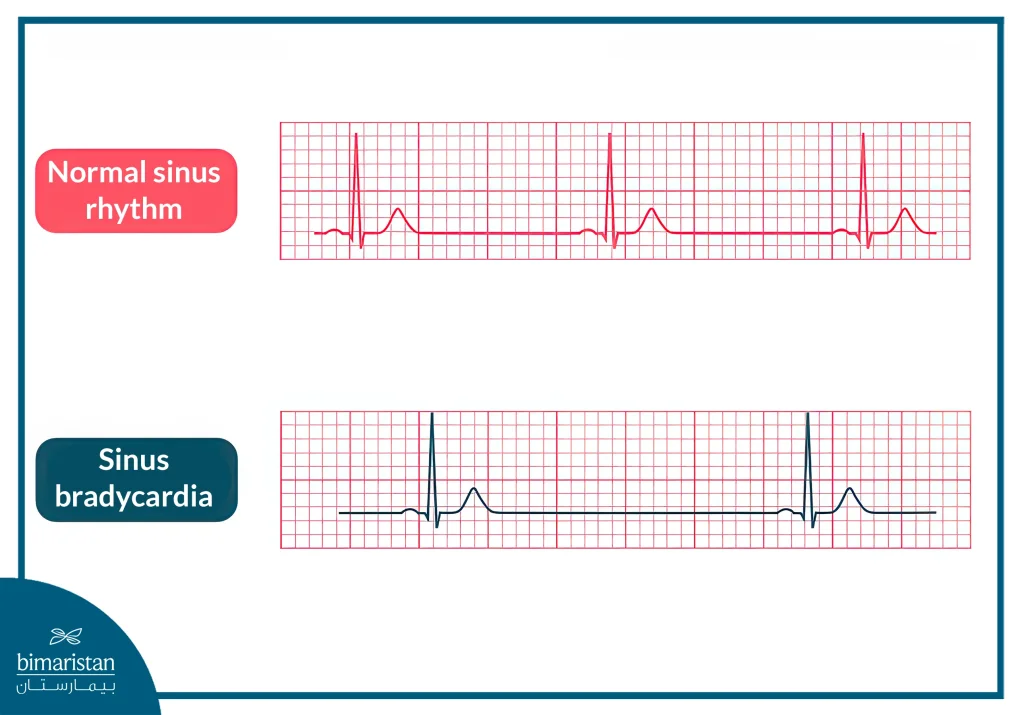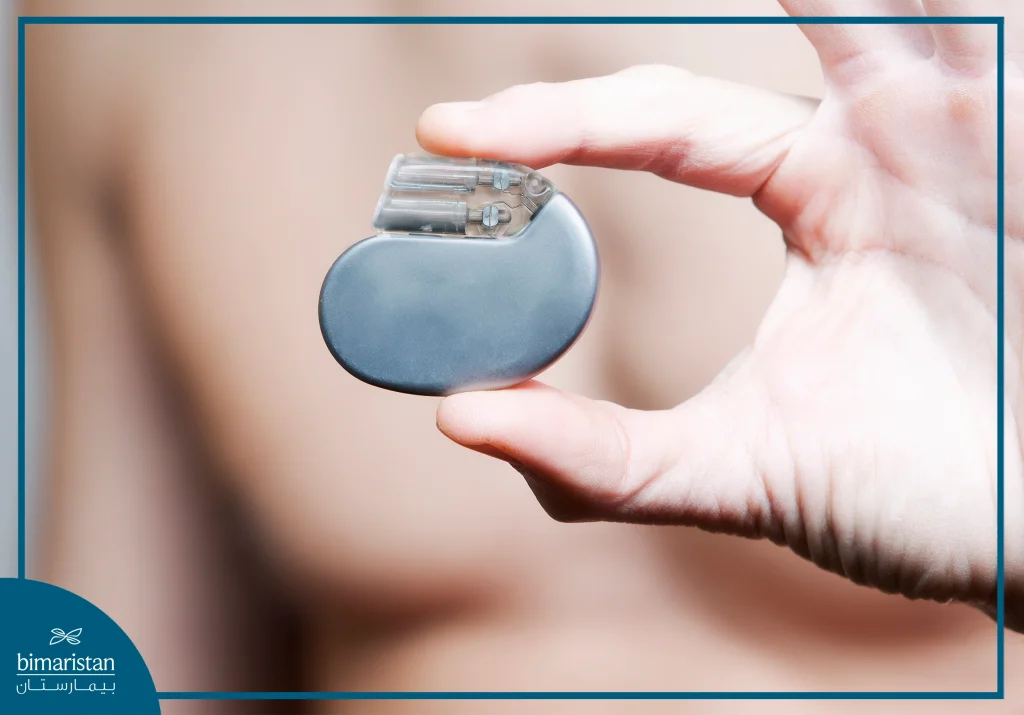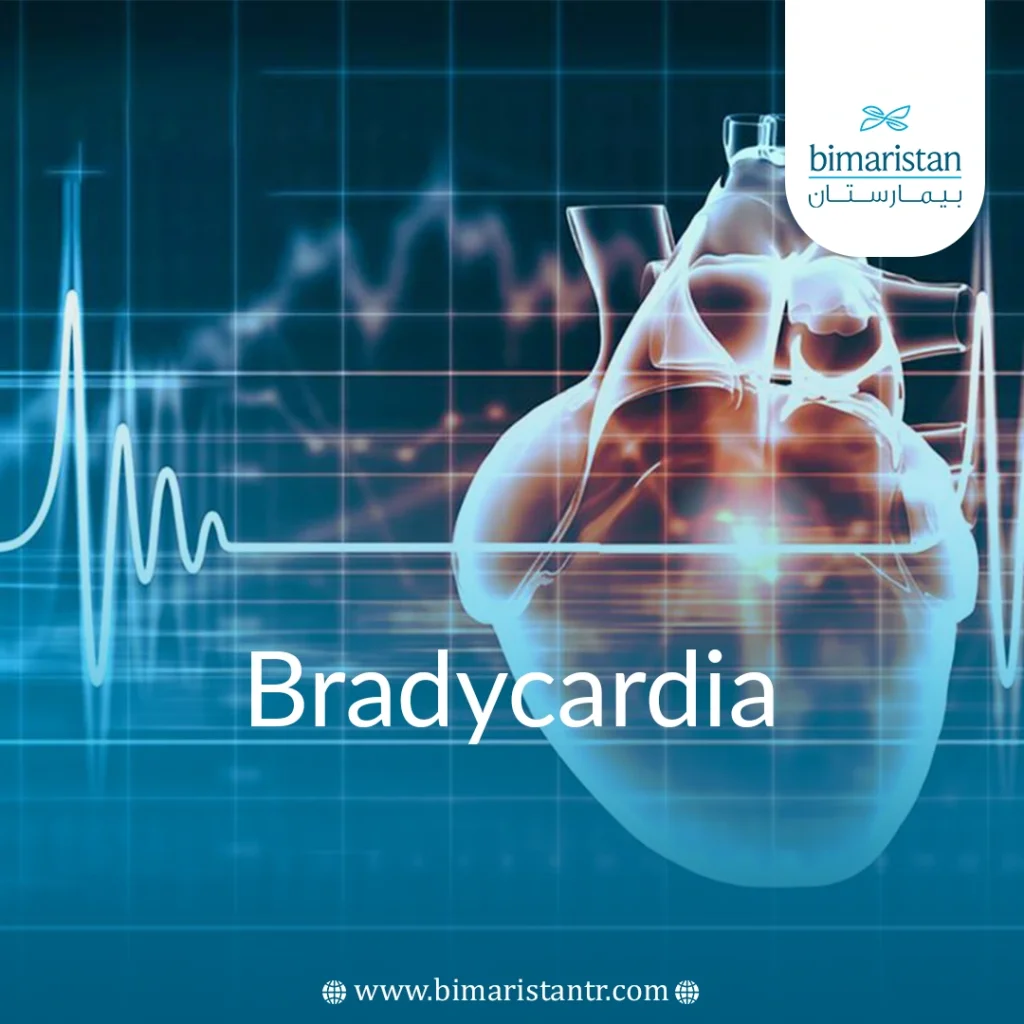Bradycardia is a very low heart rate. The normal adult heart rate is 60–100 beats per minute. Bradycardia may cause symptoms that require treatment in Turkey.
Bradycardia
The heart muscle is responsible for pumping oxygen-laden blood throughout the body via what’s called the circulatory system. When the heart doesn’t work properly and beats less than 60 beats per minute at rest, a condition called bradycardia occurs.
Bradycardia may be physiological in some people; a resting heart rate of 40 beats per minute is normal for some fit athletes, and the heart rate may drop below 60 beats per minute during deep sleep.
On the other hand, a slow heartbeat can be life-threatening if the heart can’t deliver enough oxygenated blood to all parts of the body, then symptoms such as dizziness, fatigue, and shortness of breath occur.
How does the heart keep its rhythm?
The human heart consists of four chambers: two upper chambers (atria) and two lower chambers (ventricles).
On the wall of the right atrium is a group of cells that form a node called the sinoatrial node, which is responsible for generating regular electrical signals.
These electrical signals travel through the wall of the atria, causing them to contract and push blood toward the ventricles, and then the signal travels to another node in the center of the heart called the atrioventricular node.
The atrioventricular node acts as a gateway, stopping the signal for milliseconds before allowing it to travel to the His bundle and Purkinje fibers, which transmit it to the wall of the ventricles so that they contract, completing the heartbeat.
The sinoatrial node regulates the speed of heartbeat by controlling the speed of electrical signals, so this node is the natural regulator of the human heartbeat.

Causes of bradycardia
There are many causes and conditions that may lead to a very low heart rate and bradycardia. This condition increases with age, like most other heart diseases, due to damage to the heart tissue. The causes of bradycardia include:
- Problems with the sinoatrial node, such as sick sinus syndrome
- Problems with the atrioventricular node or signal transduction pathways
- Congenital heart defects
- Metabolic issues such as hypothyroidism
- Heart damage caused by heart disease or a heart attack
- Carditis, rheumatic fever, and systemic lupus erythematosus
- Previous heart surgery
- Disruption of a blood electrolyte, such as potassium or calcium
- Sleep apnea syndrome
- Some medications, such as sedatives, opioids, and medications used to treat high blood pressure and heart arrhythmias
Suffering from bradycardia or a slow heartbeat?
At Bimaristan Medical Center in Turkey, we identify the exact cause of bradycardia and connect you with expert doctors and top hospitals for the best personalized treatment.
Start your heart care journey today — contact us now.
Symptoms of bradycardia
A low heart rate in adults of less than 60 beats per minute leads to insufficient blood supply to the brain and other organs and tissues of the body, depriving them of the oxygen needed to perform their normal function to the fullest, and the following signs and symptoms may appear:
- Roundabout
- Weakness and fatigue
- Mental scramble
- fainting
- Respiratory distress or shortness of breath
- Chest pain
- Difficulty exercising
- Cardiac arrest (in severe cases)
If your heart rate drops below 60 beats per minute and you don’t experience any of the above symptoms, don’t panic, but be careful! If you experience any of the symptoms of bradycardia, contact us immediately.
Diagnosing bradycardia
After listening to your complaint, the doctor in Turkey will clinically examine you, listen to your heartbeat with a stethoscope to determine your heart rate, and measure your resting blood pressure.
To try to determine the cause of the bradycardia and get more information about your heart rhythm and heart rate, you may be asked to undergo some tests and analyses:
- Electrocardiogram (ECG or EKG): This is the most important diagnostic test for bradycardia, as it measures the electrical activity of the heart, your heart rate may be normal when an ECG is performed in the doctor’s office despite your symptoms, when this happens your doctor will give you a 24-hour ECG monitor called a Huttler monitor.

- Blood tests: such as a complete blood count and measuring the level of sugar, electrolytes, and thyroid hormones in the blood.
- Sleep study: When sleep apnea is suspected.
Depending on the results of the previous tests, the doctor in Turkey may perform further tests to diagnose low heart rate and determine the exact cause of its occurrence in order to choose the optimal final treatment for each case.
Bradycardia treatment
The treatment of bradycardia in Turkey depends mainly on the onset of symptoms; sometimes the patient does not need treatment, and sometimes bradycardia causes serious life-threatening complications.
The treatment of bradycardia may depend on treating the cause, such as treating hypothyroidism, treating underlying heart disease or correcting electrolytes, or your doctor may have to treat the bradycardia itself with medications or a heart battery.
Treating a slow heartbeat at home
Treating bradycardia with medications is possible, but this can have many long-term side effects, often when bradycardia causes severe symptoms and there is no obvious cause for the low heart rate that can be reversed.
The following are medications to treat bradycardia and maintain a normal heart rate that can be given intravenously in case of ambulatory bradycardia:
- Atropine (which is the first line of treatment)
- Dopamine
- Epinephrine
- Glycopyrrolate
Sometimes, bradycardia can also be treated with herbs such as hawthorn, which has distinctive properties that help maintain a regular heart rate. Plant foods, especially those rich in minerals such as magnesium and potassium and vitamins such as vitamin C found in chili peppers, can also be helpful, as they are considered natural stimulants for the human heart.
Heart battery
If your bradycardia is severe and other methods of treating your slow heartbeat have not worked, you may be eligible for a heart battery procedure in Turkey.
Heart batteries are devices used to regulate the heartbeat by sending electrical signals to the heart and are usually implanted in the chest under the skin.
A pacemaker contains a battery and circuitry in a small metal case and wires routed through veins into the heart’s chambers. This device constantly monitors the heartbeat and sends electrical signals to speed it up whenever it becomes slow.

Now, with the advancement of treatment in Turkey, it is possible to install a wireless pacemaker that sends electrical signals to the heart without the need for wires. This has proven effective in treating low heart rate.
Sources:

